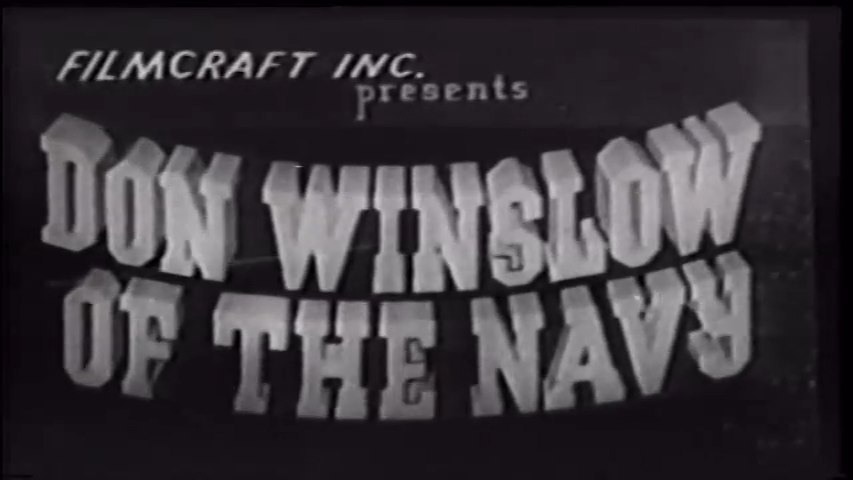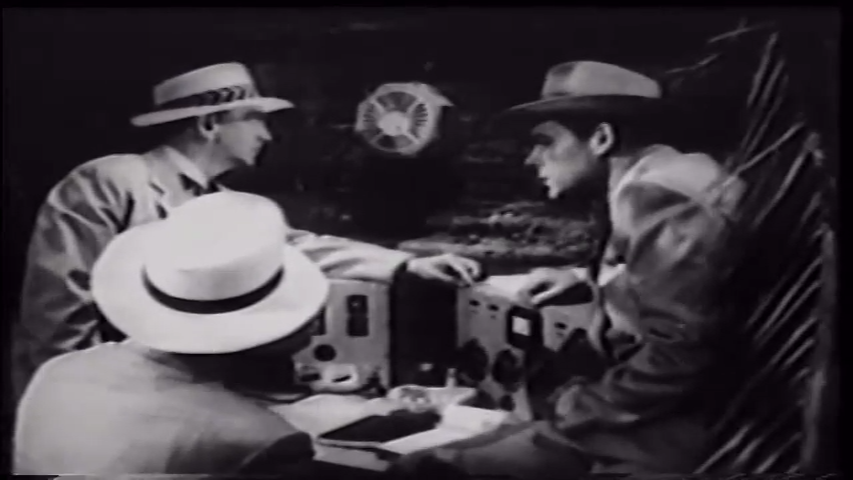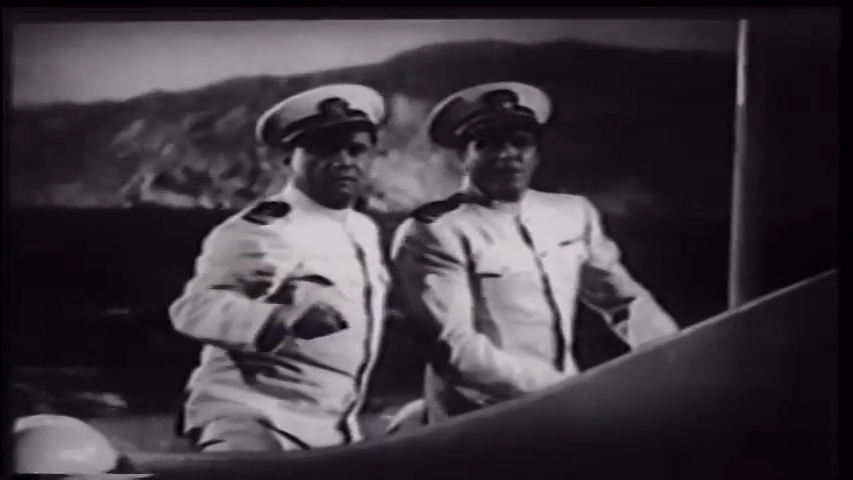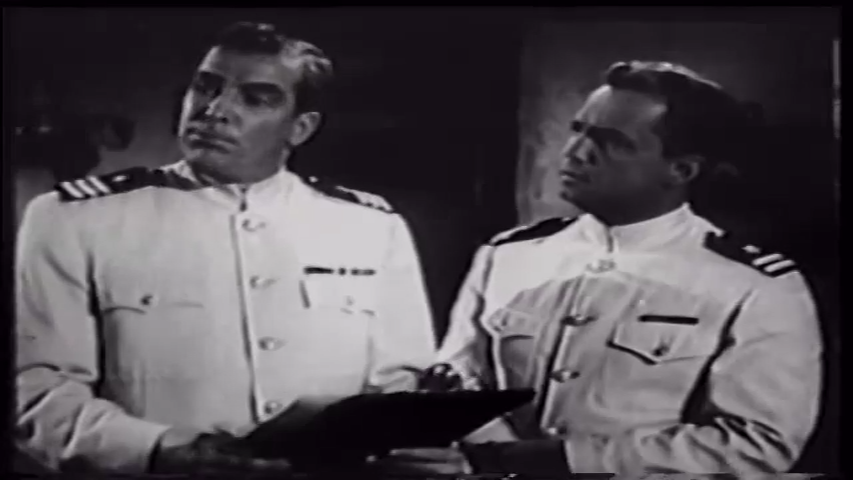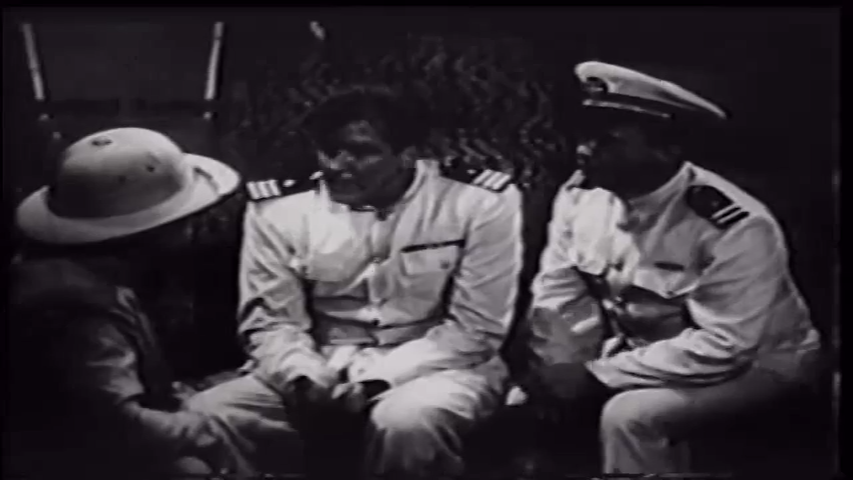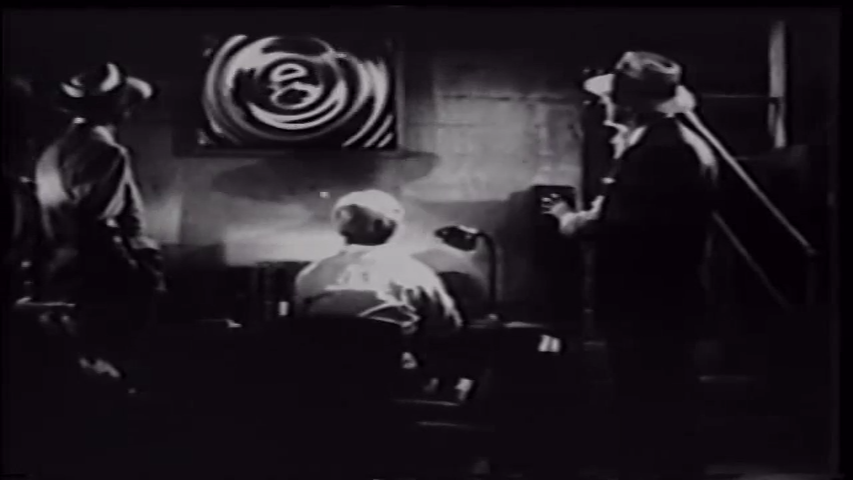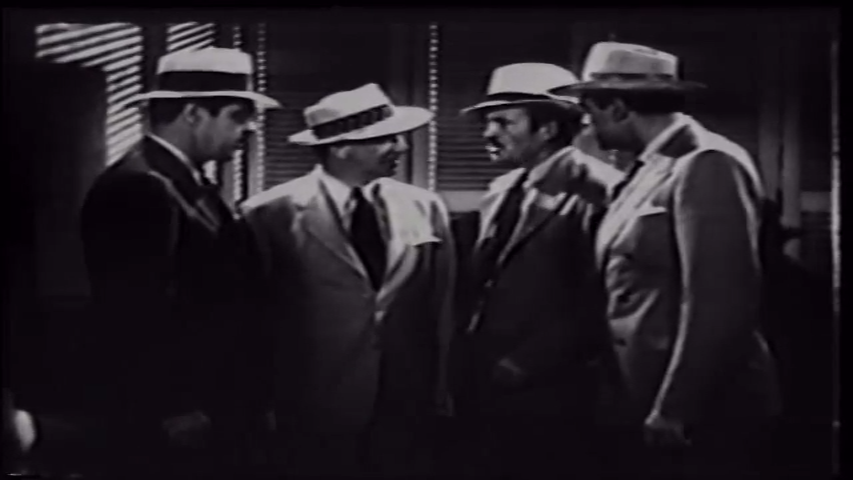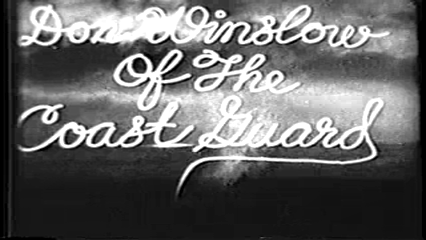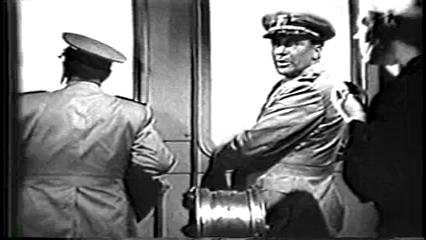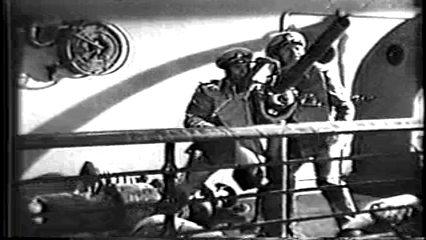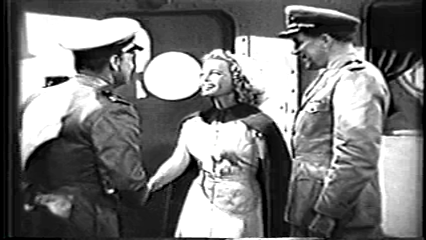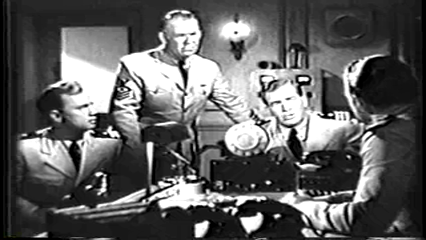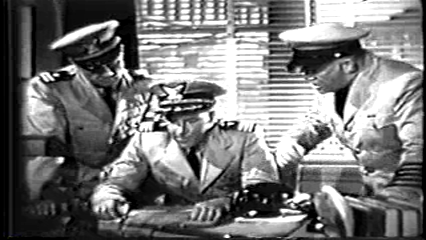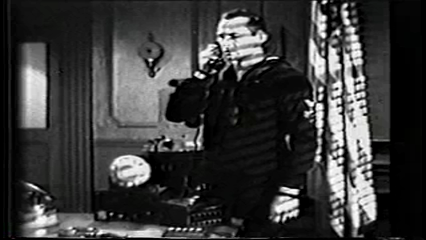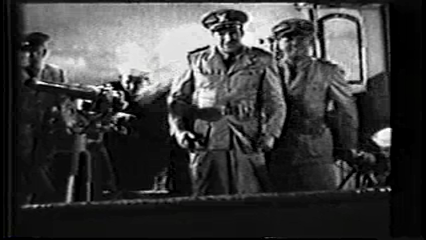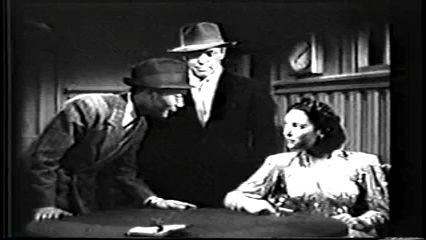-
#436 – Don Winslow of the Navy (1942)
Don Winslow of the Navy (1942)
Film review #436
Directors: Lewis D. Collins, Ray Taylor
SYNOPSIS: Commander Don Winslow of the U.S. Navy is assigned to stop a foreign spy ring that is intent on sabotaging the construction of a new naval base on an island in the Pacific Ocean. Winslow and his friends battle against the head of the spy ring, known only as “The Scorpion” and seek to foil his evil schemes across land, sea and air…
THOUGHTS/ANALYSIS: Don Winslow of the Navy is a 1942 film serial comprised of twelve chapters, and is based on the U.S. navy approved comic strip character of the same name. The story concerns Commander Winslow being assigned to stop a spy ring from sabotaging the construction of a new naval base in the Pacific Ocean. There’s not really anything special to say about the plot; it is a fairly standard setup that is found in nearly every wartime serial. While it is to be expected that these serials served as propaganda at the time for the war effort, Don Winslow was a character that was sanctioned and approved by the U.S. navy, so while this means that the uniforms and representation of the navy are fairly accurate, it probably means that there was a lot of oversight regarding what he should and shouldn’t do. I think this is probably the reason why he rarely gets into fistfights or other messy situations (although he does more so than in the sequel, where he never gets rough with anyone). Whereas the pre-wartime serials had plenty of lead characters that would don masks to conduct vigilante missions against the enemy, pre and post-war serials typically reserved such costumes and roles for the villains, while making leads that were victorious American soldiers.
The characters are about what you’d expect from a serial, with Winslow being the face of the navy in the serial, and being expectedly heroic and patriotic. His fellow navy officer “Red” serves as his friend and backup in the action scenes, and Mercedes Colby fills the single female role. The villains are also pretty standard, with a bunch of henchmen being led by a man who is only known as “The Scorpion,” who as usual is a white man in make-up to “look” Japanese. We only ever see him, however, on a screen in the spy’s secret base, and there is no final showdown with him (he is however, confronted in the sequel). One very distracting thing about The Scorpion is that with the close-ups of his face on the screen, you can clearly tell the actor is reading his lines as his eyes move left to right, which is quite distracting.
There’s plenty of stock footage used of navy vessels and submarines that makes the action a bit more exciting, which again is probably owed to the fact that the serial had the involvement of the U.S. navy (although I’m led to believe that the submarine that shows up in the stock footage is a British submarine). The models used for the airplanes and such, are far less convincing. The cliffhangers usually end up with Winslow getting caught in an explosion or a collapsing building, and usually walking away with nothing more than a limp. Again, fairly standard resolution to the chapter cliffhangers, and obviously they’re not going to show a navy officer getting seriously hurt if they’re being portrayed as strong invincible heroes of the war. Overall, Don Winslow of the Navy is what you would expect from a wartime serial. It’s not particularly interesting and neither does it offer anything new or original. The use of stock footage of ships and navy vessels gives it a larger sense of scale, but it’s a product of wartime propaganda that serves almost exclusively that purpose, and not worth seeking out.
-
#435 – Don Winslow of the Coast Guard (1943)
Don Winslow of the Coast Guard (1943)
Film review #435
Directors: Lewis D. Collins, Ray Taylor
SYNOPSIS: Following his success at Pearl Harbour, navy officer Don Winslow is assigned to the U.S. coast guard to stop Japanese saboteurs led by the mysterious “Scorpion.” Winslow’s new mission is to stop the saboteurs from disrupting the Coast Guard’s operations and to find their secret island base from where they are conducting their nefarious schemes.
THOUGHTS/ANALYSIS: Don Winslow of the Coast Guard is a 1943 Universal Pictures serial comprised of thirteen chapters. It is based on the comic strip Don Winslow of the Navy, approved by the U.S. Navy. The story of the serial opens with Commander Don Winslow, along with his buddy “Red,” being assigned to the U.S. Coast Guard to defend against foreign spies and saboteurs, in particular, a Japanese spy ring led by a man known only as “The Scorpion” (in ties of war the Coast Guard becomes under the direct command of the navy, which explains why Winslow is so easily transferred and keeps his rank and uniform etc.). Each chapter brings a new scheme for Winslow to foil as the spies try and sabotage facilities to prepare for a ground invasion. It’s all the sort of thing you would expect from a wartime serial such as this. Being a character that was approved by the U.S. navy, it should also be no surprise that this is a big propaganda film for the service, and as such the serial is full of ships and submarines engaged in warfare through the use of stock footage. Furthermore, the anti-Japanese rhetoric is pretty severe, again, probably to reinforce the idea of them as enemies of the U.S. at a time of war. Overall, the story isn’t anything special, as a lot of the wartime serials urge viewers to remain vigilant of spies to help their country.
The characters are all a pretty standard bunch. Don Winslow is obviously the heroic and ideal Navy officer who will defeat the enemy and claim victory for his country, as well as inspire people to support and join the navy as well. His friend “Red” serves as his sidekick to join in on the action scenes, and not much else. Mercedes Colby plays the typical token female role, and takes on a similar typical role as a nurse (although this is a little different than the job of journalist or secretary that female characters usually get in these serials). The villains are also nothing special, comprising of American actors in make-up to “look” Japanese, and The Scorpion himself having little presence. On the other hand, there are a fair amount of actual Asian actors to play some background Japanese soldiers, and actually speak some Japanese (even though the pronunciation is a little off from what I can tell).
The production values are fairly decent for the format, which perhaps reflects the use as wartime propaganda. I am left wondering just how much involvement the Navy had with the serial’s production, as there is a lot of stock footage of Navy battles and cannon fire, particularly in the first chapter, where this footage is used so overwhelmingly it is nearly impossible to follow the plot. Another curious thing to note is that there are practically no fistfights anywhere in the serial, which is basically unheard of in the format. Perhaps getting involved in such brawls would have looked unsightly for a Navy officer? Either way, that doesn’t stop Winslow shooting or pistol-whipping his enemies. Overall, Don Winslow of the Coast Guard follows many wartime serials, but is rather less than subtle about its use as military propaganda. The over reliance on stock footage makes the plot difficult to follow at times, although it makes a change to see action scenes that don’t revolve around poorly-choreographed fistfights. The inherently racist and nasty anti-Japanese rhetoric in particular means that the serial has not aged well, but you can see why it invests so much in it, given that the attack on Pearl Harbour would still have been raw in America’s consciousness, and the serial knows to play on that. I would not recommend this serial, as overall it is a bit too much of a story-related mess and a product of its time.
